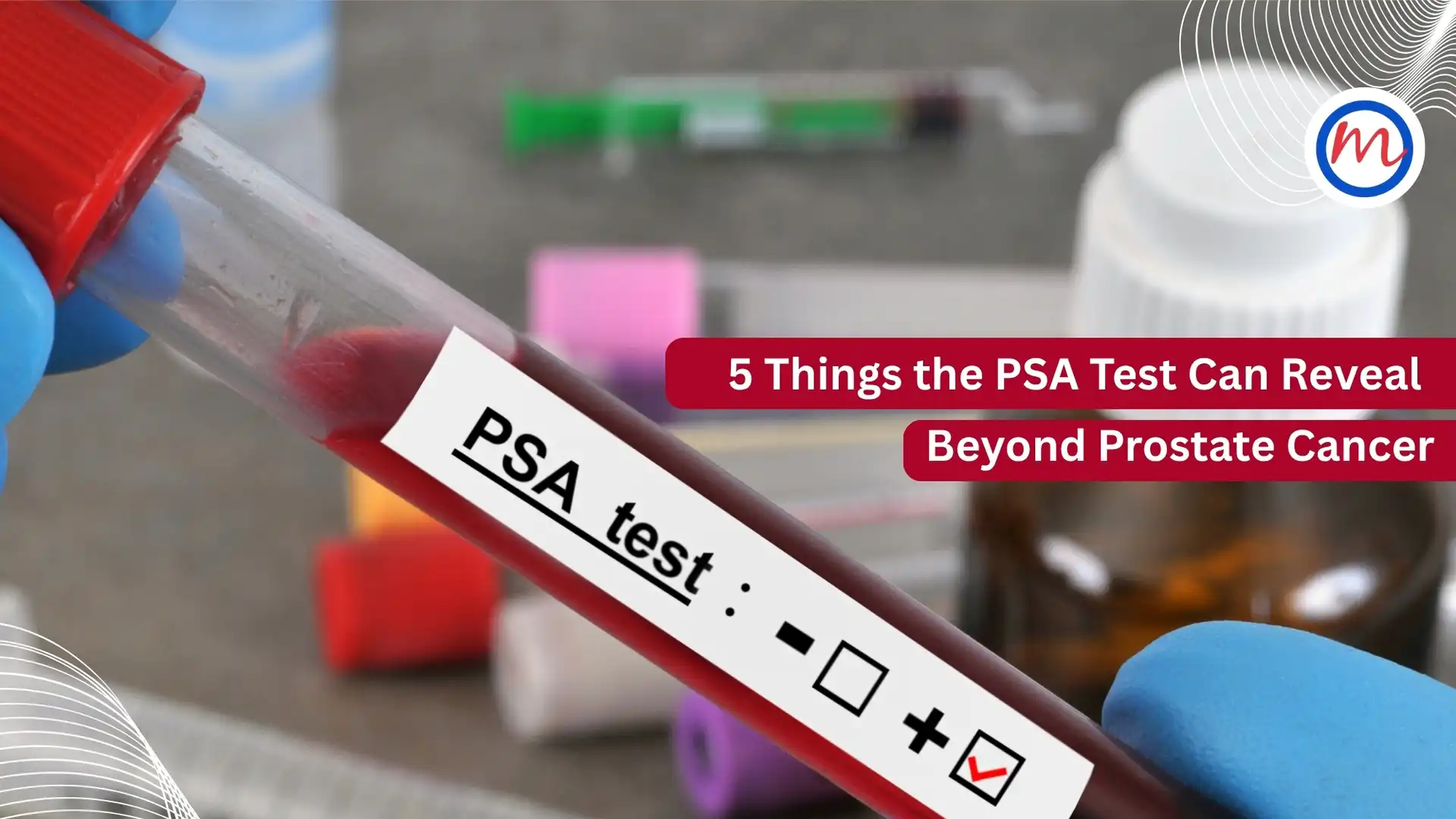5 Things the PSA Test Can Reveal – Beyond Prostate Cancer
Most people think of the PSA test only in the context of prostate cancer. While it’s true that Prostate-Specific Antigen (PSA) levels are a key marker for early detection of prostate cancer in men, this test can also reveal a lot more about your health, especially if you are living with diabetes.
Diabetes can increase the risk of certain cancers and urinary issues in men. That’s why PSA screening is often recommended as part of comprehensive diabetes health check-ups, particularly for men over 45.
Here are 5 important things the PSA test can reveal — even if cancer isn’t suspected.
-
Early Signs of Prostate Enlargement (BPH)
Benign Prostatic Hyperplasia (BPH), or non-cancerous enlargement of the prostate, is common in men over 50. It can cause:
- Frequent urination
- Weak stream
- Interrupted sleep due to nighttime urination
A mild rise in PSA might point to BPH, not cancer — but still worth investigating early.
-
Chronic or Silent Prostate Infections
Sometimes, men experience chronic prostatitis (inflammation of the prostate) without fever or pain. A slightly raised PSA could suggest an ongoing, low-grade infection even if you feel fine.
Unexplained PSA elevation? It might be time to check for inflammation or infection.
-
How Diabetes Affects Your Prostate Health
Studies suggest men with long-standing diabetes may have a lower risk of prostate cancer but a higher risk of prostate enlargement or poor urinary flow. PSA helps track these changes over time.
PSA, along with digital rectal exam, gives a complete picture of prostate health in men with diabetes.
-
Post-Surgical or Post-Injury Recovery
If you’ve undergone prostate surgery, biopsy or catheterisation, PSA levels may temporarily spike. Monitoring PSA helps assess healing and rule out complications.
PSA levels usually normalise within weeks — but tracking helps ensure that there are no lingering issues.
-
Your Long-Term Cancer Risk
A steady rise in PSA over months or years — even within the normal range — may signal early prostate cancer. Combined with age and family history, PSA becomes a powerful early detection tool.
The key lies in PSA trends, not just one number.
PSA Reference Ranges
| Age Group | Normal PSA (ng/mL) |
| Men < 50 | 0 – 2.5 |
| Men 50–59 | 0 – 3.5 |
| Men 60–69 | 0 – 4.5 |
| Men 70+ | 0 – 6.5 |
Total & Free PSA ratio can improve accuracy in assessing cancer risk.
At Dr. Mohan’s Diabetes Specialities Centre, the Total & Free PSA test is included in advanced diabetes screening packages for men, ensuring prostate health is never overlooked in your overall care
For more, visit our site: https://drmohans.com/



